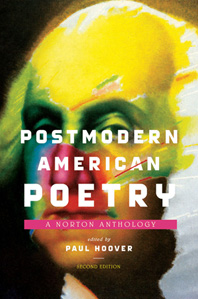
John Tranter
Under the horizon
John Tranter
Apple iBooks ...
October 31, 2012
Two bright new books of poetry
One from each side of the Atlantic!

October 30, 2012
Émile Benveniste in conversation with Pierre Daix, 1968
Paris in 1968

October 29, 2012
What was Flarf?
October 27, 2012
Denise Levertov feature
In Jacket 36

October 26, 2012



